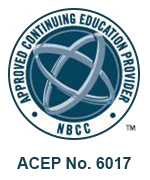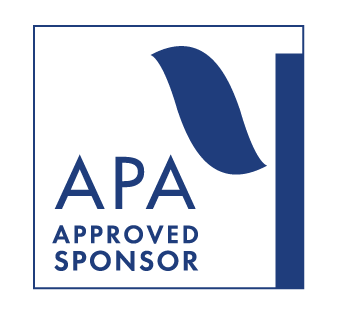This monthly videoconference seminar begins Friday September 17, 2021. Join us for one session or sign up for the full series.
This year’s master speaker series focuses on trauma, with a spectrum from child abuse to tsunamis, famine, war and the Holocaust.
We begin in September with a psychoanalytic overview of trauma by David Scharff and Janine Wanlass, who will describe differences in the origin, scale, manifestations, and sequelae of varying kinds of trauma. In October Jeff Taxman will explore the effects on communities and individuals of mass and community trauma, setting the stage for much of the material that follows during the year. In November, Sverre Varvin from Norway discusses psychosocial care and psychoanalytic therapy for extreme trauma. In December, Harold Kudler, who has had a career in the Veterans Administration Mental Health Services, will talk about psychological trauma among veterans. In January, Robert Ursano, who directs an Institute for the study of trauma at the Uniformed Services Medical School, will describe what PTSD teaches us about the brain and effective psychotherapy for PTSD. This is followed in February by Ghislaine Boulanger’s groundbreaking work on adult-onset trauma from a psychoanalytic perspective. In March, Tomas Plänkers of the Sigmund Freud Institut in Frankfurt, Germany will introduce psychic trauma specific to China. In April, Richard Warshak will talk about his field of expertise, the trauma that occurs when children reject their parents in what has been called “parental alienation”. And finally in May, Ira Brenner will discuss the intergenerational transmission of trauma with specific reference to the Holocaust.
This year’s star-studded lineup is particularly designed to be helpful to those of us who deal with psychological trauma, but who have not made a specific study of the topic. Those who attend this series should emerge with a much clearer understanding of the causes of trauma, its varying manifestations, and how to apply specific psychotherapeutic and psychoanalytic treatments.
Program Chair
David Scharff, MD and Janine Wanlass, Ph.D.
Program Date(s):
September 17, 2021 - May 6, 2022Each Friday course meets from 9:00 AM ET-11:00 AM ET
Educational Objectives
Sept 17 – A Psychoanalytic Overview of Trauma
- Participants will discuss two ways that childhood trauma impacts development.
- Participants will describe two common defenses utilized to manage trauma.
- Participants will identify two psychoanalytic techniques used in the treatment of trauma.
Oct 15 – Understanding & Intervention During Massive Community Trauma & Crisis
- Participants will describe 2 stages in the typical pattern from onset to recovery in mass community traumas.
- Participants will list 3 community interventions that can alleviate broad scale suffering in mass traumas.
Nov 12 – Psychosocial care & Psychoanalytic Therapy for Extremely Traumatized People
- Participants will describe 4 factors that characterize individual suffering in the wake of trauma.
- Participants will list 3 elements of effective treatment for acutely traumatized individuals
Dec 3 – Psychoanalytic Approaches to Psychological Trauma Among Veterans: A History & a Future
- Participants will articulate 3 fundamental contributions of psychoanalysts to the modern understanding of combat-related psychological trauma and post-traumatic stress disorder (PTSD).
- Participants will discuss 3 ways to implement psychoanalytic conceptualizations of psychological trauma in the clinical assessment & treatment of combat veterans
Jan 21 – What PTSD as a disorder teaches us about the brain and psychotherapy treatment
- Participants will identify 3 correlates of brain functioning impacted by PTSD.
- Participants will apply 2 psychoanalytic concepts in the construction of a treatment program specific to PTSD.
Feb 18 – The Psychoanalytic Context to Adult Onset Trauma
- Participants will list 3 factors that distinguish the effects of adult onset trauma from childhood trauma.
- Participants will identify 3 essential elements in psychoanalytic treatment of adult onset trauma.
March 11 – Psychic Trauma in Individuals & Society: The Case of China
- Participants will identify 3 common intergenerational effects of the Chinese Cultural Revolution.
- Participants will describe 2 ways that sociopolitical trauma in large groups impacts individuals and their culture.
April 8 – When Children Reject Parents: Therapeutic Management of Parental Alienation
- Participants will define pathological parental alienation, distinguish it from false positive identifications, & discuss the resulting multi-generation losses.
- Participants will describe at least 3 common errors when treating alienated children.
- Participants will discuss 2 ways to promote healing in a disrupted parent–child relationship.
May 6 – Intergenerational Transmission of Trauma
- Participants will describe 2 pathways of transmission of trauma from one generation to another
- Participants will enumerate 3 ways of treating families with widespread intergenerational trauma to mitigate further transmission.
Continuing Education Credit Hours
2 CE hours per video conference; 18 hours for full series of nine.
Registration
Click here to register for the full series
To register for individual sessions, click the Register links in the schedule above.
Tuition and Fees
Registration Fee: $55 for individual sessions; $440 for the full series.
IPI Members: $45 for individual sessions; $360 for the full series.
Limited scholarship funds are available for this training: https://theipi.org/scholarships/
Membership Benefits
Become a member of IPI at the “Associate Member PLUS”, or “Full Member PLUS” level and you will receive an IPI Zoom Pro account as one of your member benefits. Associate and Full Members also receive discounted registration fees for most of IPI’s events, a subscription to PEP Web, the online psychoanalytic library, and other benefits depending on membership level.
HIPAA compliant Zoom video accounts are provided for all IPI Associate Member Plus and Full Member Plus memberships. IPI has a HIPAA Business Associate Agreement with Zoom, which provides a HIPAA compliant platform for our accounts. HIPPA compliance is strongly recommended for all internet-mediated clinical work and clinical teaching. The “PLUS” add-on to the IPI membership gives the user the ability to host online meetings with multiple people at the same time. [Current members can upgrade to the “Plus” account and only pay the difference in price from your current membership level.]
Click for IPI Membership and Zoom Account information
Should you have any questions about the program or the application process, please feel free to contact:
Contact Us - contactus@theipi.org
Continuing Education Information
The International Psychotherapy Institute, IPI, is approved by The American Psychological Association to sponsor continuing education for psychologists. IPI maintains responsibility for the program and its content. The International Psychotherapy Institute has been approved by NBCC as an Approved Continuing Education Provider, ACEP No. 6017. Programs that do not qualify for NBCC credit are clearly identified. The International Psychotherapy Institute is responsible for all aspects of the programs. The International Psychotherapy Institute is an approved sponsor of the Maryland Board of Social Work Examiners for continuing education credits for licensed social workers in Maryland. The International Psychotherapy Institute is recognized by the New York State Education Department’s State Board for Social Work as an approved provider of continuing education for licensed social workers #SW-0299.
Participants are responsible for verifying that IPI CE credit is accepted by the licensing boards in their own states. Please note: At this time we are aware that CE credit for IPI events will not be accepted by the New Jersey Board of Social Work.



